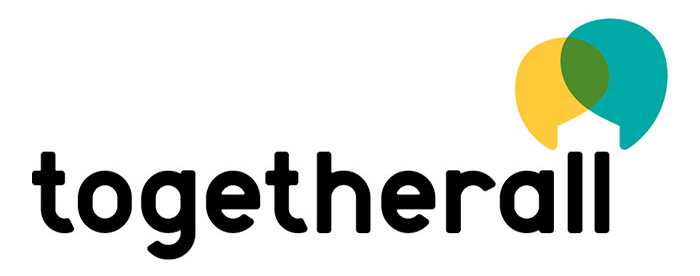Create your own mental fitness routine.
By Togetherall
As Seafarers, you perform an admirable service and know that the qualities of being physically fit and eating well are the very essence of good health. However, have you also considered that mental fitness is equally as important?
Your mental health effectively equals 50% of your overall health, so it should go hand in hand with physical training and fitness. Being a part of the Seafaring community can mean exposure to situations and experiences that are unique, so learning the skills, techniques and mental resilience to cope with these are crucial.
What is mental resilience?
Resilience is an individual’s ability to adapt positively to pressure, setbacks, challenges and change, to achieve and sustain peak personal effectiveness. Resilient people won’t wallow or dwell on failures, but quickly acknowledge, learn and move on from them. Evidence shows that high levels of resilience can deliver valuable results for individuals. E.g. quick to solve problems, reduced stress, improved work performance, developed positive attitudes and sustained high levels of well-being and happiness.
What does someone who has mental resilience look like?
Physically, they look just like you! The difference may be their mental outlook on personal situations, experiences and wider.
Challenges – Resilient people view difficulty as a challenge, not as a paralysing situation, they view their failures or mistakes as lessons to draw new learning and as opportunities for growth. Their mistakes are not seen as a negative reflection on their abilities or self-worth. Individuals are mostly optimistic and view setbacks as temporary not permanent.
Commitment – Resilient individuals are committed to their lives and their goals and they have a compelling reason to get out of bed in the morning. Commitment is not just linked to work, but also relationships, their friendships, things they care about and their religious or spiritual beliefs. They don’t allow setbacks to affect other unrelated areas of their lives.
Personal Control – Resilient people spend their time and energies on the situations and events they have control over, putting their efforts where they can deliver effect, feeling empowered and confident. They don’t blame themselves or see themselves as victims when things go wrong, seeing other people or circumstances as having a part to play. They are compassionate and empathic, spending little time worrying what others think of them.
How can I build a mentally fit mind-set?
The good news is that even if you don’t consider yourself a naturally resilient person you can learn to develop a strong mind-set.
- Continue to get enough sleep, eat a regular balanced diet and exercise. When you take care of both your mind and body, you are better able to cope with life’s challenges.
- Practice thought awareness. If you notice any negative or unhelpful thoughts creeping in – challenge them. Thinking is like your personal voice inside your head and the nature of this thinking can influence how you cope. If you are critical, hard on yourself and view situations as black and white e.g. all my fault, this can make you feel down or lead to unhelpful behaviors e.g. being angry, aggressive or withdrawing. Don’t expect too much of yourself, be compassionate or kind to yourself by adopting more realistic and balanced thoughts.
- Change the way you approach new or challenging situations and view them as opportunities for learning and growth. A negative viewpoint can lead to a self-fulfilling prophecy. Keep a sense of perspective and don’t blow things out of proportion, however overwhelming events are, they are usually short lived.
- Develop strong personal and work relationships. These increase your resistance to stress as you will have a strong support network to fall back on.
- Be more flexible. Accept that things change and your carefully made plans may occasionally need to be amended or scrapped.
- Believe in yourself as confidence leads to success. This allows you to take considered risks, learn and, even with setbacks, you will eventually reach your goals.
- Identify the lesson in your mistakes or failures as the will teach you something important for the future. Remember, even the most traumatic situations are opportunities for post traumatic growth.
- Problem solve as you go along, don’t store or bottle stuff up in the hope it will go away or someone else will deal with it. Have courage, it feels good to get the things done that have been bothering you.
- Remember, we all experience bad days and we all go through our share of crises, we have a choice in how we respond; whether negatively in a panic, or calm and logical working towards finding a solution.
- Don’t be afraid to ask for help. It can be tempting to view ‘asking for help’ as ‘losing face’, but it’s not. Others can offer an important and different point of view when approaching a problem and can help you reach the end goal quicker and more efficiently.
- Practice. Togetherall.com offer tailor made courses and online peer support which provide you with 24 hour resources to practice, learn and talk about your mental health and improvement.
So, are you fit enough – mentally? Take the time to understand your strengths and weaknesses so you can create your own mental fitness regime. Look after your mental health and the rest will follow.
About Togetherall:
Togetherall is an anonymous, online mental health support community, available to all aged 16+. To register for free, visit www.Togetherall.com/joinnow/shs
